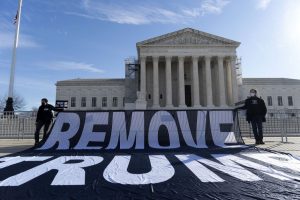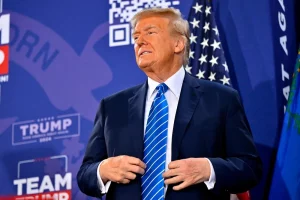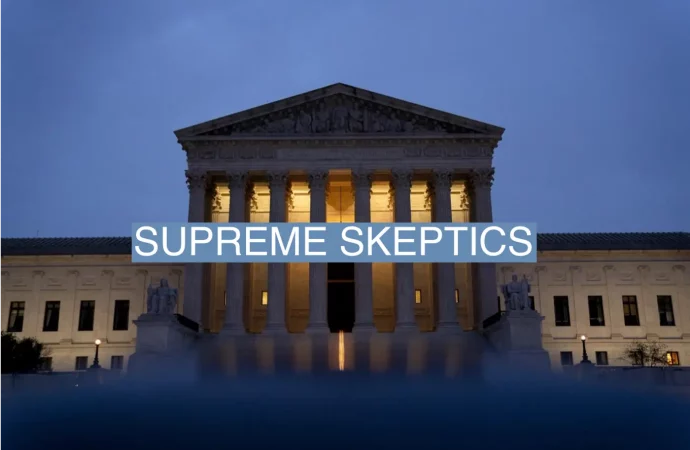Introduction The United States Supreme Court finds itself at the crossroads of law and politics as it deliberates on the inclusion of former President Donald Trump on Colorado’s ballot. In this article, we explore the legal complexities, potential ramifications, and the cautious stance exhibited by the Supreme Court during its recent hearing. The Legal Landscape:
Introduction
The United States Supreme Court finds itself at the crossroads of law and politics as it deliberates on the inclusion of former President Donald Trump on Colorado’s ballot. In this article, we explore the legal complexities, potential ramifications, and the cautious stance exhibited by the Supreme Court during its recent hearing.
The Legal Landscape: Arguments Presented

This image is taken from google.com
The case, which challenges the decision to exclude Trump from Colorado’s ballot, has been met with intricate legal arguments. Key elements include:
1. Residency Requirements
The heart of the matter revolves around Colorado’s residency requirements for presidential candidates. The legal debate delves into whether Trump meets the criteria and if his absence from the ballot would infringe upon his rights.
2. Precedents and Presidential Privileges
Legal scholars have referenced past cases involving presidential candidates and the delicate balance between states’ rights to set eligibility criteria and potential federal implications, particularly concerning former presidents.
3. Judicial Discretion
The Supreme Court appears cautious, acknowledging the gravity of the decision and its potential presidential impact. The justices explore the limits of judicial discretion in electoral matters, striving to find a balance between state autonomy and constitutional considerations.
Sarah Mitchell’s Legal Insights

This image is taken from google.com
To provide a deeper understanding of the legal intricacies, we spoke with Sarah Mitchell, a distinguished Constitutional Law expert. Mitchell states:
“The Supreme Court faces a delicate task of balancing state autonomy in setting election criteria with potential constitutional implications. The outcome of this case could set a precedent for future disputes over the eligibility of presidential candidates.”
Potential Ramifications
The decision reached by the Supreme Court holds significant implications for both the 2024 election and the broader landscape of state-federal relations. It may influence how states navigate the inclusion or exclusion of candidates based on residency and eligibility criteria.
Visualizing the Legal Landscape
Comparative Table: Residency Requirements in Select States
| State | Residency Criteria for Presidential Candidates | Judicial Review Authority |
|---|---|---|
| Colorado | [Criteria specific to Colorado] | Supreme Court |
| New York | [Criteria specific to New York] | Appellate Courts |
| Texas | [Criteria specific to Texas] | State Supreme Court |
Conclusion: A Verdict with Far-Reaching Effects
As the Supreme Court deliberates on Trump’s inclusion on Colorado’s ballot, the nation awaits a decision that could shape the contours of future electoral disputes. The delicate balance between state prerogatives and constitutional considerations underscores the complexity of the case, emphasizing the importance of a nuanced and judicious approach to the intersection of law and politics. Stay tuned for further updates as this crucial legal saga unfolds.
















